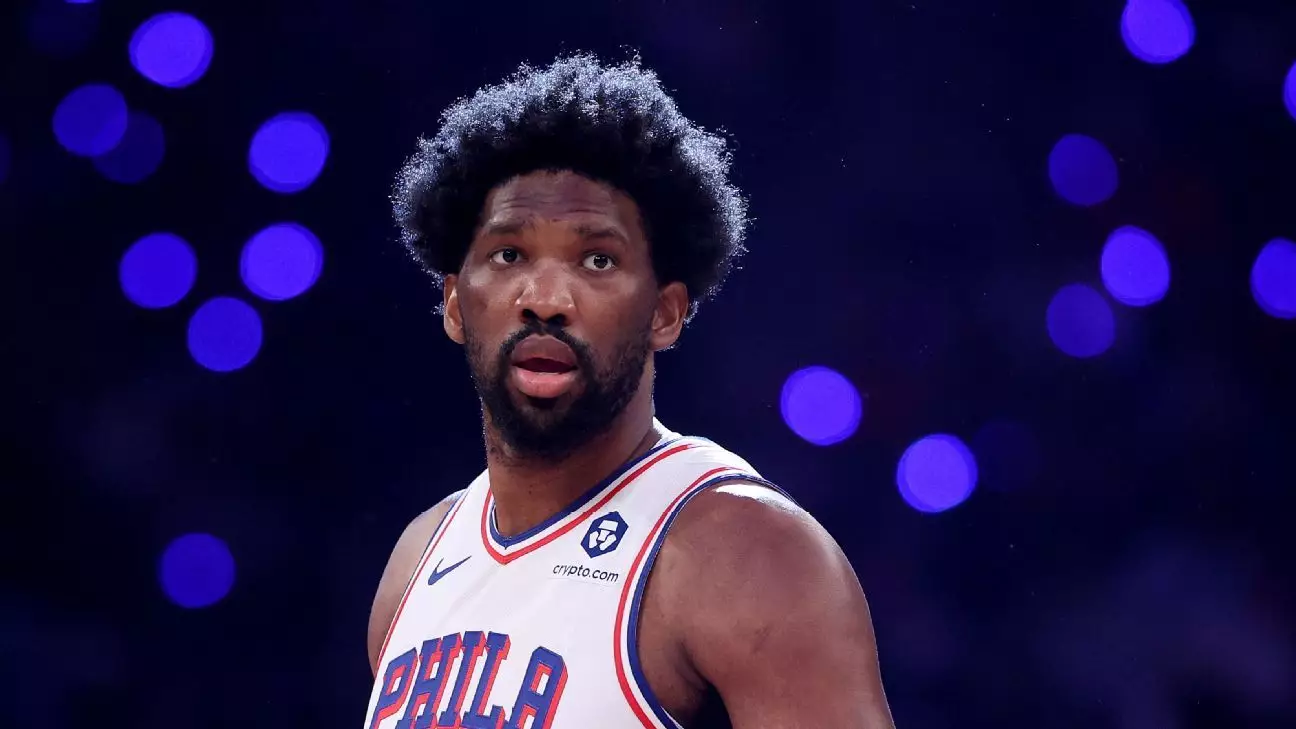The Philadelphia 76ers’ recent announcement regarding Joel Embiid’s decision to forego the remainder of the preseason due to left knee concerns emphasizes a crucial aspect of modern professional sports: injury management. Embiid’s health is paramount to the team’s aspirations, particularly as the 76ers build momentum heading into a promising season. While the absence of a key player during the preseason may seem alarming, this strategy can be pivotal for ensuring that the star center is fully prepared for the rigorous demands of the upcoming regular season.
Joel Embiid’s relationship with injuries is a well-documented saga that has raised ongoing questions about his durability. Despite his remarkable talent and contributions on the court, injuries have hindered his ability to maintain consistent play, particularly during crucial moments like playoffs. Last season, a late January injury curtailed his chances of defending his MVP title, exemplifying the fragile nature of his physical condition. The decision to limit his participation this preseason seems to stem from a desire to prioritize his long-term health over short-term readiness.
Embiid’s consultation with medical professionals about his knee follows a series of similar precautions. Sources suggest that the goal is not merely to bring him back onto the court but to ensure the knee is close to 100% for the entirety of the grueling NBA season. Notably, Embiid has taken proactive measures to manage his conditioning—reportedly shedding 25 to 30 pounds in anticipation of the season. By losing weight, he aims to alleviate some of the stress on his joints, demonstrating a commitment to his health and performance.
This season, expectations for the Philadelphia 76ers are at an all-time high. The team made considerable strides over the summer, adding depth and versatility to its roster. The acquisition of star forward Paul George and the extension of key players like Tyrese Maxey signal a commitment to competing at the highest level. However, the team must navigate the uncertainty surrounding Embiid’s availability—his absence may not only affect game dynamics, but it also puts additional pressure on his teammates to step up in his stead.
Looking Ahead: The Season Opener
As the season opener against the Milwaukee Bucks approaches on October 23, the implications of Embiid’s preseason absence will be closely monitored. The coaching staff must develop strategies that accommodate not only Embiid’s eventual return but also maintain team cohesion and performance in the interim. The contributions of supporting players such as Kelly Oubre Jr., Kyle Lowry, and newcomers, including Eric Gordon and Andre Drummond, will be pivotal in mitigating the impact of Embiid’s initial absence.
While the need to manage Embiid’s knee issues is disheartening for fans and the franchise alike, this strategic decision could be the key to a successful NBA campaign for the Philadelphia 76ers. Prioritizing health over immediate participation is a gamble worth taking, especially with championship aspirations on the horizon.


Leave a Reply